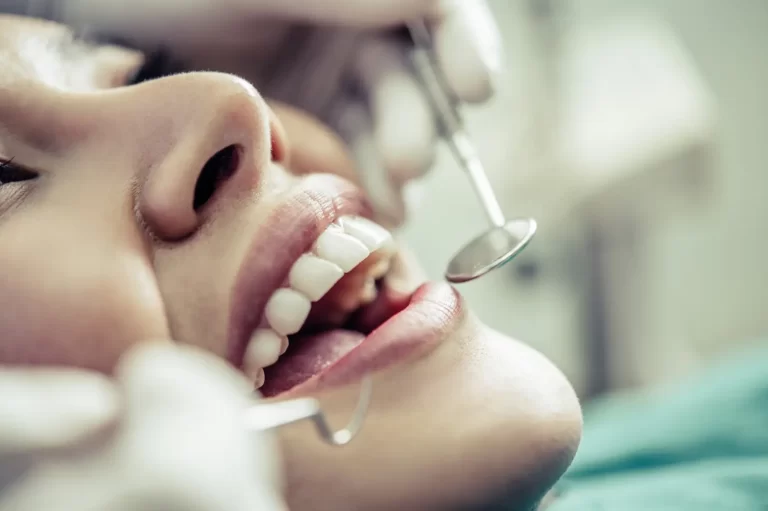After deep teeth cleaning, also known as scaling and root planing, it’s important to stick to soft, non-acidic foods that won’t irritate your gums or sensitive teeth.
Foods like mashed potatoes, yogurt, and scrambled eggs are excellent choices during the healing period.
Avoid hard, sticky, and spicy foods, as they can cause discomfort or interfere with recovery.
In this post, we’ll discuss the best foods to eat after a deep teeth cleaning, what to avoid, and how to promote a smooth recovery.
Why Is Diet Important After Deep Cleaning?
Deep teeth cleaning is a procedure designed to remove plaque and tartar buildup beneath the gum line, helping to treat gum disease and protect your oral health.
However, the process can leave your gums and teeth more sensitive as they heal.
Eating the right foods is essential because:
- It minimizes irritation to treated areas.
- It prevents food particles from getting stuck in sensitive gum pockets.
- It promotes faster healing and reduces the risk of complications.
By making mindful dietary choices, you can ensure a smoother recovery process.
Foods You Can Eat After Deep Cleaning
Here are some safe and soothing food options to enjoy after your deep teeth cleaning procedure in Pretoria:
1. Soft Foods:
- Mashed potatoes
- Yogurt
- Scrambled eggs
- Applesauce
- Smoothies (avoid seeds and acidic fruits)
- Oatmeal
2. Non-Acidic Foods:
- Cooked vegetables (e.g., steamed carrots or broccoli)
- Bananas
- Soft bread or rolls
- Rice or pasta
3. Protein-Rich Options:
- Soft fish (like salmon)
- Tofu
- Beans or lentils
- Finely shredded chicken or turkey
4. Cold Foods:
- Ice cream (without hard mix-ins)
- Chilled soups like gazpacho (non-acidic varieties)
- Smoothies or milkshakes
These foods are gentle on your gums and easy to eat while reducing the risk of irritation.
Foods to Avoid After Deep Cleaning In Pretoria
For the first 24–48 hours, steer clear of the following:
1. Hard or Crunchy Foods:
- Nuts
- Chips
- Raw vegetables
- Crusty bread
2. Sticky Foods:
- Chewy candies
- Caramel
- Taffy
3. Acidic Foods and Drinks:
- Citrus fruits (oranges, lemons, grapefruits)
- Tomatoes
- Soda
- Coffee
4. Spicy Foods:
- Chili or hot sauce
- Spicy curries
5. Alcohol:
- Alcohol can irritate sensitive gum tissue and slow the healing process.
Avoiding these foods helps protect treated areas and reduces the chance of pain or irritation.
How Long Should You Follow Dietary Restrictions?
- Stick to a soft-food diet for the first 24–48 hours after your deep cleaning.
- Gradually reintroduce regular foods as your gums heal and your sensitivity decreases.
- Healing times may vary depending on the severity of your gum disease or the extent of the procedure. If you’re unsure, consult your dentist in Pretoria.
Tips for Eating Comfortably After Deep Cleaning
- Chew on the Opposite Side: Avoid chewing directly on treated areas to reduce irritation.
- Rinse with Salt Water: Use a warm saltwater rinse after meals to keep your gums clean and promote healing.
- Use a Straw for Beverages: Drinking through a straw minimizes contact with sensitive gum areas.
- Stay Hydrated: Drinking plenty of water helps keep your mouth clean and supports healing.
After a deep cleaning, sticking to soft, non-acidic foods is key to promoting healing and reducing discomfort.
By avoiding hard, sticky, and spicy foods, you can protect your gums and speed up recovery.
If you have any questions or concerns about what to eat after your deep teeth cleaning procedure, don’t hesitate to contact us.
Schedule your appointment today and experience the personalized care that keeps your smile healthy and beautiful!
FAQs
1. Can I eat immediately after a deep cleaning?
It’s best to wait until the numbness from any anesthesia wears off to avoid biting your cheek or tongue. Start with soft foods when you feel comfortable eating.
2. When can I resume eating crunchy foods?
You can usually reintroduce crunchy foods after 48 hours, but only if your gums feel comfortable.
3. Is it okay to drink coffee or alcohol after a deep cleaning?
It’s best to avoid coffee and alcohol for the first 24–48 hours, as they can irritate sensitive gum tissue and delay healing.
4. How do I avoid food getting stuck in sensitive areas?
Rinse your mouth gently with warm salt water after eating to dislodge any trapped food particles and keep the area clean.
5. What should I do if I experience pain while eating?
If you feel pain, stick to softer foods and avoid hot or spicy meals. Over-the-counter pain relievers can also help.
6. Are there foods that can promote faster healing?
Yes! Foods rich in vitamins A and C, like mashed sweet potatoes or soft fruits like bananas, can aid tissue repair and healing.



